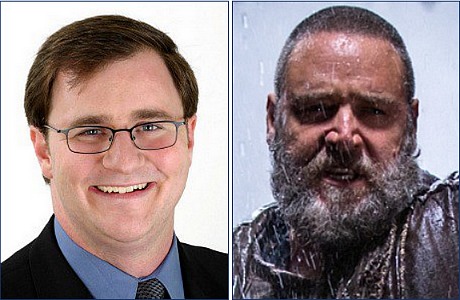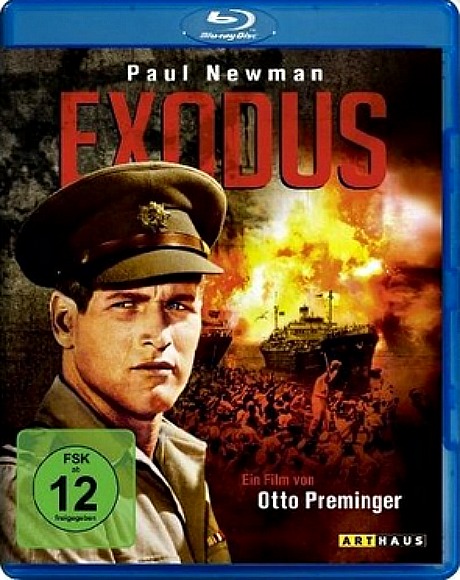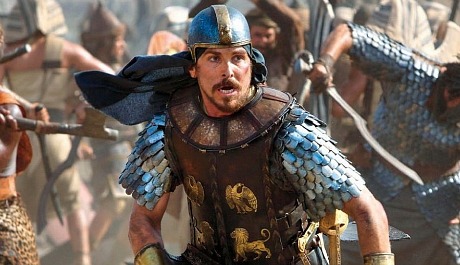In a 4.2 Indiewire piece called “Can Atheist Audiences Enjoy Darren Aronofsky’s Noah?,” the brilliant James Rocchi explains his resistance to a theological mindset as follows: “I am not a believer in any religious tradition or idea of God; in fact, I dislike the term ‘atheist’ specifically because like, say, ‘Marvel Cinematic Universe,’ it’s a term that gives way too much unquestioned weight to one side of the argument. People who recognize that, for one example, dragons could not exist and have not existed don’t have to be labeled an ‘adragonist’; they’re just called ‘reasonable.'”

(l.) Indiewire contributor James Rocchi; (r.) Noah star Russell Crowe.






